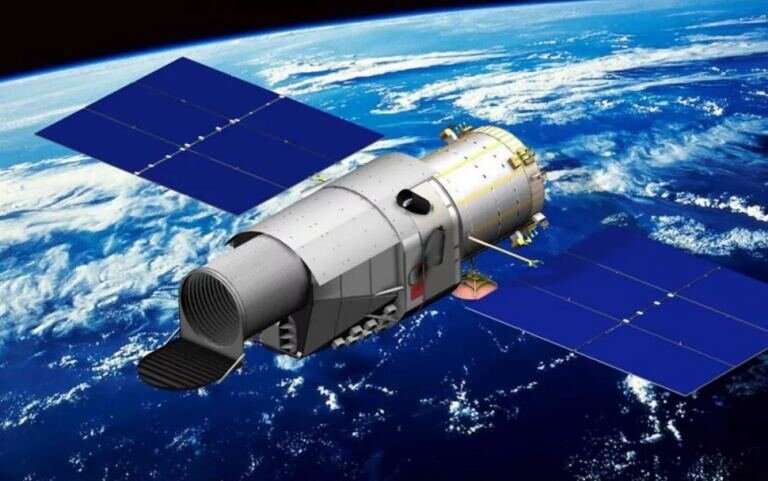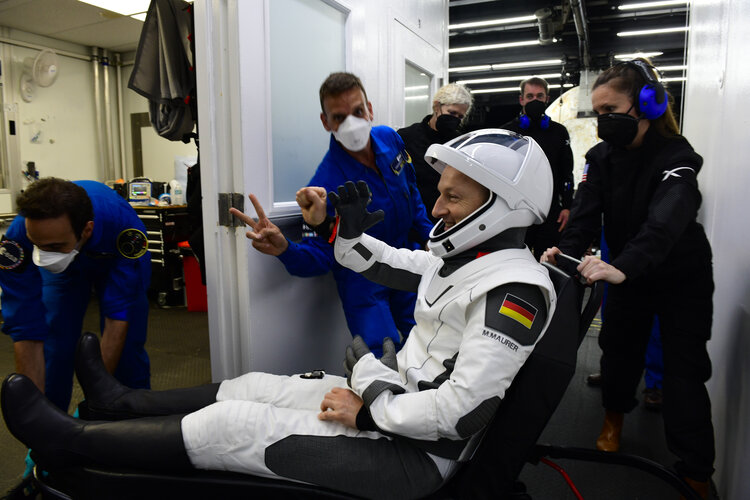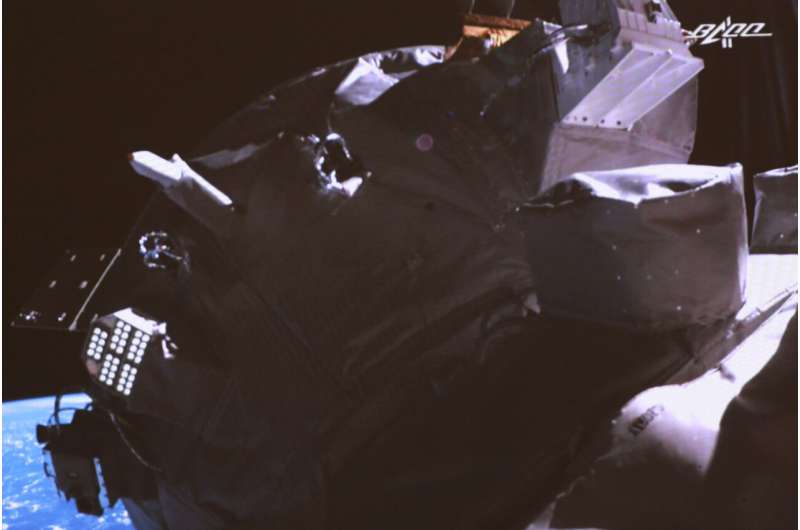
Copernical Team
Terran Orbital ships CAPSTONE satellite to New Zealand for Rocket Lab launch vehicle
 Terran Orbital Corporation (NYSE: LLAP), a global leader in satellite solutions, primarily serving the United States aerospace and defense industry, has announced it has shipped its CAPSTONE satellite to a launch site on the Mahia Peninsula of New Zealand. CAPSTONE will launch on a Rocket Lab Electron rocket using a Lunar Photon satellite upper stage to send the spacecraft on its planned lunar t
Terran Orbital Corporation (NYSE: LLAP), a global leader in satellite solutions, primarily serving the United States aerospace and defense industry, has announced it has shipped its CAPSTONE satellite to a launch site on the Mahia Peninsula of New Zealand. CAPSTONE will launch on a Rocket Lab Electron rocket using a Lunar Photon satellite upper stage to send the spacecraft on its planned lunar t NASA selects SES Government Solutions to support Near-Earth communications
 SES Government Solutions (SES GS), a wholly-owned subsidiary of SES, in partnership with Planet Labs PBC (Planet), has been awarded a Funded Space Act Agreement from NASA's Communications Services Project (CSP) to support the development and demonstration of near-Earth communication services in support of the agency's future mission needs.
SES GS will partner with Planet to develop a real-
SES Government Solutions (SES GS), a wholly-owned subsidiary of SES, in partnership with Planet Labs PBC (Planet), has been awarded a Funded Space Act Agreement from NASA's Communications Services Project (CSP) to support the development and demonstration of near-Earth communication services in support of the agency's future mission needs.
SES GS will partner with Planet to develop a real- Kepler provides on-orbit high-capacity data service to Spire Global
 Kepler Communications announces a contract with data, analytics, and space services company, Spire Global Inc. ("Spire") (NYSE: SPIR) to bring high-capacity Ku-Band Service to the company's satellites. Through this contract, Spire will gain access to Kepler's robust Ku-Band technology, enabling the company to provide additional value to space services customers. The agreement will see Spire inst
Kepler Communications announces a contract with data, analytics, and space services company, Spire Global Inc. ("Spire") (NYSE: SPIR) to bring high-capacity Ku-Band Service to the company's satellites. Through this contract, Spire will gain access to Kepler's robust Ku-Band technology, enabling the company to provide additional value to space services customers. The agreement will see Spire inst Xona passes critical testing milestone as private GNSS readies for launch
 Xona Space Systems, the aerospace startup developing a precision navigation and timing system in low Earth orbit, has announced that their first in-space demonstrator has been delivered to Spaceflight Inc. for final integration after successfully completing testing and is scheduled for launch on SpaceX's Transporter 5 in May. Xona is building the first ever independent high-performance satellite
Xona Space Systems, the aerospace startup developing a precision navigation and timing system in low Earth orbit, has announced that their first in-space demonstrator has been delivered to Spaceflight Inc. for final integration after successfully completing testing and is scheduled for launch on SpaceX's Transporter 5 in May. Xona is building the first ever independent high-performance satellite China's cargo craft docks with space station combination
 In the latest stage in its space station program, China launched the Tianzhou 4 cargo spacecraft early on Tuesday morning, to transport fuel and supplies to its Tiangong space station, according to the China Manned Space Agency, or CMSA.
In a brief statement, the agency said that a Long March 7 carrier rocket blasted off from the Wenchang Space Launch Center in Hainan province at 01:56 am,
In the latest stage in its space station program, China launched the Tianzhou 4 cargo spacecraft early on Tuesday morning, to transport fuel and supplies to its Tiangong space station, according to the China Manned Space Agency, or CMSA.
In a brief statement, the agency said that a Long March 7 carrier rocket blasted off from the Wenchang Space Launch Center in Hainan province at 01:56 am, China announces its new flagship space telescope mission

Distant galaxies, dark matter, dark energy and the origin and evolution of the universe itself are some of the many scientific goals of China's newly announced space telescope. If all goes according to plan, the China Space Station Telescope (CSST) will blast off atop a Long March 5B rocket sometime in late 2023. Once in a safe orbit, CSST should begin observations in 2024. Judging by these research topics, it looks like the Chinese Academy of Sciences is throwing down an impressive scientific gauntlet for itself and its astronomers.
What it means to have a space telescope
Owning and operating a space telescope really opens the doors to a treasury of information about the universe. Certainly, that's what motivated the creation of the Hubble Space Telescope (HST). The dream of cosmic exploration motivated Hermann Oberth in the 1920s to write semi-science-fictional treatises about orbiting telescopes on asteroids.
Watch live: press conference with Matthias Maurer back on Earth

ESA astronaut Matthias Maurer is back in Europe after 177 days in space. Watch the first press conference following his Cosmic Kiss mission at 11:45 CEST (10:45 BST) 11 May live on ESA Web TV.
Supplies launched to China's new space station for next crew

China launches the Tianzhou 4 cargo spacecraft
 In the latest stage in its space station program, China launched the Tianzhou 4 cargo spacecraft early on Tuesday morning, to transport fuel and supplies to its Tiangong space station, according to the China Manned Space Agency, or CMSA.
In a brief statement, the agency said that a Long March 7 carrier rocket blasted off from the Wenchang Space Launch Center in Hainan province at 01:56 am,
In the latest stage in its space station program, China launched the Tianzhou 4 cargo spacecraft early on Tuesday morning, to transport fuel and supplies to its Tiangong space station, according to the China Manned Space Agency, or CMSA.
In a brief statement, the agency said that a Long March 7 carrier rocket blasted off from the Wenchang Space Launch Center in Hainan province at 01:56 am, Plans unveiled to better connect space industries in Scotland and the UAE
 Globally focused strategic space marketing firm AstroAgency, headquartered in Edinburgh, has announced it will team up with a Dubai-based space investment and advisory company AzurX, to support space businesses in both regions, access new development opportunities and forge collaborative partnerships.
The two organisations boast a global space client base, with AzurX acting as the trusted
Globally focused strategic space marketing firm AstroAgency, headquartered in Edinburgh, has announced it will team up with a Dubai-based space investment and advisory company AzurX, to support space businesses in both regions, access new development opportunities and forge collaborative partnerships.
The two organisations boast a global space client base, with AzurX acting as the trusted 